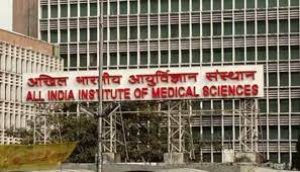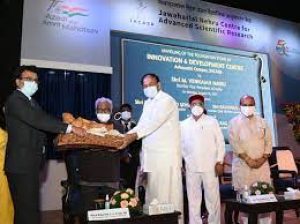
Current Affairs is the most important area in all competitive exams. But the difficulty level is very high. That’s why; many aspirants get confused, how to select Current Affairs for Preparation of Competitive Examination? In this Post, Daily Current Affairs 18 August 2021, we have tried to cover each and every point and also included all important facts from National/ International news that are useful for upcoming competitive examinations such as UPSC, SSC, Railway, State Govt. etc.
Daily Current Affairs 18 August 2021
AIIMS to have fire station inside hospital premises

The All India Institute of Medical Science (AIIMS), Delhi, has become the first hospital in India to house a fire station inside the hospital premises. The AIIMS has joined hands with the Delhi Fire Service for the purpose.
The fire station, meant for quick response in case of fire emergency, will have its infrastructure developed by the AIIMS, while the fire tender, equipment, and manpower will be managed by the DFS.
Delhi Fire Services Director Atul Garg termed it a “proud moment”. “Again a proud moment for DFS, DFS has joined hand with AIIMS to open a fire station inside the Hospital to meet any emergency.
AIIMS become a First Hospital in the country to have fire stn in his campus, Infrastructure will be provided by the AIIMS& manpower etc will be managed by DFS”, he said in a tweet.
Having a total of 61 fire stations and 3,616 personnel, including 3,280 firefighters, the DFS attends to nearly 22,000 fire and rescue calls on an average in a year.
Narendra Tomar inaugurated world’s second-largest refurbished gene bank

Union Minister for Agriculture and Farmers Welfare Narendra Singh Tomar recently inaugurated the world’s second-largest refurbished state-of-the-art National Gene Bank at the National Bureau of Plant Genetic Resources (NBPGR), Pusa in New Delhi.
The National Gene Bank established in the year 1996 to preserve the seeds of Plant Genetic Resources (PGR) for future generations, has the capacity to preserve about one million germplasm in the form of seeds.
Presently it is protecting 4.52 lakh accessions, of which 2.7 lakh are Indian germplasm and the rest have been imported from other countries.
National Bureau of Plant Genetic Resources is meeting the need of in-situ and ex-situ germplasm conservation through Delhi Headquarters and 10 regional stations in the country.
Ministry of Civil Aviation grants drone use permission to 10 organizations

Ministry of Civil Aviation (MoCA) and Directorate General of Civil Aviation (DGCA) have granted conditional exemption from Unmanned Aircraft System (UAS) Rules, 2021 to 10 organizations.
The detail of these permissions include:
- Government of Karnataka: Drone based aerial survey for creating urban property ownership records in Bengaluru
- National Health Mission, Mumbai: For conducting experimental BVLOS drone flights to deliver essential healthcare items in tribal areas of Jawhar in Palghar district of Maharashtra
- Gangtok Smart City Development: Drone based aerial survey for Smart City Project.
- Steel Authority of India, IISCO Steel Plant, Burnpur, West Bengal: For conducting perimeter surveillance of the plant
- Asia Pacific Flight Training Academy, Hyderabad, Telangana: For conducting remote pilot training using drones
- Blue Ray Aviation, Gujarat: For conducting remote pilot training using drones
- Tractors and Farm Equipment Limited, Chennai: For conducting drone based aerial spraying to assess crop health & prevent crop disease
- Mahindra & Mahindra, Mumbai, Maharashtra: For conducting drone based agricultural trials & precision spraying on paddy & hot pepper crop in the state of Telangana & Andhra Pradesh respectively
- Bayer Crop Science, Mumbai, Maharashtra: For conducting drone based agricultural research activities & agricultural spraying
- Indian Institute of Tropical Meteorology, Pune: For atmospheric research at 5 locations.
Project BOLD of KVIC gets Army support in Leh

The Project BOLD (Bamboo Oasis on Lands in Drought) of Khadi and Village Industries Commission (KVIC) has received Indian Army’s support in Leh.
On August 15, Army planted 20 bamboo saplings at its compound in Leh.
These 20 saplings of special bamboo species were handed over to the Army by KVIC on 12th August at Jammu for plantation in Leh.
This is the first ever attempt to grow bamboo trees in the high Himalayan terrains with the objective of preventing land degradation and developing green cover.
In continuation with this effort, 1000 bamboo saplings will be planted at village Chuchot in Leh on 18th August. These bamboo plants will be ready for harvest in 3 years.
Centre to set up 10 more handloom design resource centres

The Central government of India announced to set up 10 more Handloom Design Resource Centres across the country in order to promote handlooms in a big way.
Objective is to build and create design-oriented excellence in the Handloom Sector and to facilitate weavers, exporters, manufacturers and designers access design repositories for sample/product improvisation and development.
Initially, Handloom Design Centres at Mumbai, Chennai and Varanasi were set up in 1956. Activities of these Design Centres later expanded to cover other aspects of handloom textiles, which were then Re-designated as the Weavers’ Service Centres (WSCs).
Set up in 1986, NIFT is the pioneering institute of fashion education in the country and has been in the frontline of providing professional human resource to the textile and apparel industry.
Indian researchers have developed a new Visceral Leishmaniasis therapy

Indian researchers have developed a non-invasive, easy to administer, cost-effective, and patient compliant potential therapeutic strategy against Visceral Leishmaniasis.
Their strategy based on nano carrier-based oral drugs coated with Vitamin B12 enhanced oral bioavailability and efficacy of the therapy by more than 90%.
Visceral Leishmaniasis (VL) is a complex infectious disease transmitted by the bite of female Phlebotomine sandflies.
It is a neglected tropical disease that affects millions annually, making it the second most common parasitic killer after malaria.
Effective defense strategy deployed by a resistant tomato cultivar

Effective defense strategy deployed by a resistant tomato cultivar against Tomato leaf curl New Delhi virus unravelled by scientists of National Institute of Plant Genome Research.
Tomato leaf curl New Delhi virus (ToLCNDV) infection causes severe losses in tomato yield worldwide.
Lack of information on resistance (R) genes against ToLCNDV has considerably retarded the pace of crop improvement against this rapidly spreading pathogen. Several attempts have been made to identify antiviral genes against ToLCNDV and related viruses.
Scientists from DBT Autonomous Institution, National Institute of Plant Genomics Research (NIPGR) report an effective defense strategy deployed by a resistant tomato cultivar against ToLCNDV.
It employs Sw5a (R gene) that recognizes AC4 protein (viral effector) of ToLCNDV to restrict virus spread. These findings could be translated into development of resistance in susceptible cultivars of tomato through modern breeding or molecular approaches.
Taliban sweep into Afghan capital after government collapses

The Taliban swept into Afghanistan’s capital after the government collapsed and the embattled president joined an exodus of his fellow citizens and foreigners, signaling the end of a costly two-decade U.S. campaign to remake the country.
First, Tajikistan will have to consider the sentiments of Afghan-Tajiks, some who have been welcomed in the Taliban’s ranks but the majority of whom passionately reject the group.
Second, Dushanbe will be cognisant of the rise in extremism caused by the dominance of the Taliban, and the impact it will have on radical factions within Tajikistan who aim to establish an Emirate of their own.
Thirdly, Tajikistan will have to find ways to police its porous border with Afghanistan in order to prevent illicit drugs and refugees from overflowing into the country.
Tajikistan lies on Afghanistan’s northeastern border, adjacent to the Afghan provinces of Badakhshan, Takhar, Kunduz and Balkh.
Odisha announced smart health cards for 3.5 crore people

Odisha state government recently announced the expansion of its flagship health assurance scheme – Biju Swasthya Kalyan Yojana (BSKY) that it had implemented instead of the Centre’s Ayushman Bharat – Pradhan Mantri Jan Arogya Yojana (PM-JAY).
Around 3.5 crore people in 96 lakh families, who are now getting benefits under national and state food security schemes, will get cashless health coverage under BSKY from September 1 onwards.
For the first time, the State government has also introduced smart health cards for the beneficiaries.
The second component will extend cashless health coverage to the smartcard holders in more than 200 empanelled hospitals in the country.
The families will be issued two chip cards printed with the name of the beneficiary and a 12-digit unique registration number.
Chhattisgarh CM announced 4 new districts and 18 tehsils

Chhattisgarh Chief Minister Bhupesh Baghel recently announced four new districts in the state and 18 new tehsils as well.
The newly form four districts – Mohla Manpur, Sarangarh-Bilaigarh, Shakti, Manendragarh in Chhattisgarh taking the total number of districts to 32.
The state Chhattisgarh was formed by the partition of ten Chhattisgarhi and six Gondi-speaking districts in the southeast of Madhya Pradesh.
Its capital city is Raipur. It borders 7 states – Uttar Pradesh to the north, Madhya Pradesh to the northwest, Maharashtra to the southwest, Jharkhand to the northeast, Odisha to the east, and Telangana and Andhra to the south.
India to become ‘energy independent’ by 2047

Prime Minister Narendra Modi set a target of becoming ‘energy independent’ by 2047 through a mix of electric mobility, gas-based economy, doping ethanol in petrol and making the country a hub for hydrogen production.
India has to take a pledge that it will be energy independent by the year we celebrate 100th year of Independence.
The roadmap for that is to increase usage of natural gas in the economy, setting up a network of CNG and piped natural gas network across the country, blending 20 per cent ethanol in petrol and electric mobility.
The country has achieved the target of 100 gigawatts of renewable energy capacity ahead of the target.
HCL Foundation launched ‘My e-Haat’ portal to empower artisans

HCL Foundation, the corporate social responsibility arm of HCL Technologies launched an online portal, ‘My e-Haat’, to empower artisans and strengthen the value chain of the handicraft sector in the country.
Currently, more than 30 partners from eight states with over 600 products are listed on the portal, it said adding that more will be joining from across the country by the end of the year.
The portal will assist in showcasing the ingenuity of skilled artisans from all over the country in front of the globe, resulting in increased recognition, appreciation, and remuneration.
HCL Foundation hopes to connect with a larger number of artisans and primary producers across the country in the coming years, bridging the gap created by a lack of skill training, market assessment, and strengthening the supply chain infrastructure.
The portal will offer e-payment options, cash on delivery (COD) and integrated logistic support in addition to the real-time product tracking.
BPCL started door to door delivery of Diesel

PSU Bharat Petroleum Corporation Limited (BPCL) has started door-to-door delivery of diesel to meet the increasing demand of its customers.
The company will use 15 mobile bowsers and 9 Jerry can facilities in different corners of the Eastern Region for this purpose.
According to company reports, door-to-door delivery through mobile dispensers has resulted in the commissioning of 1588 FuelKarts and 129 FuelEnts over the past two years across industry and pan India.
It should be noted that the company has already launched 63 mobile dispensers serving the needs in the States of West Bengal, Bihar, Jharkhand, Odisha, and North-East states.
The company is looking forward to creating new business avenues and job opportunities for the young entrepreneurs of the eastern region.
Vice President unveiled Innovation & Development Centre at JNCASR

Vice President of India Shri M. Venkaiah Naidu recently unveiled the foundation stone Innovation & Development Centre of the Jawaharlal Nehru Centre for Advanced Scientific Research (JNCASR).
The centre aims to become a major facilitator in taking science to society and meeting the Country’s missions of ‘Make in India’ and ‘Aatmanirbhar Bharat’.
Shri Naidu appealed to the scientific community to try for excellence and come out without of the box ideas to benefit society and people.
JNCASR is an institute with global recognition, could focus on agricultural research to provide new technology to solve the problems of farmers.
40 per cent of the strength of JNCASR are women and expressed hope that more than 50 per cent strength in all institutions in India would be women in coming years.





